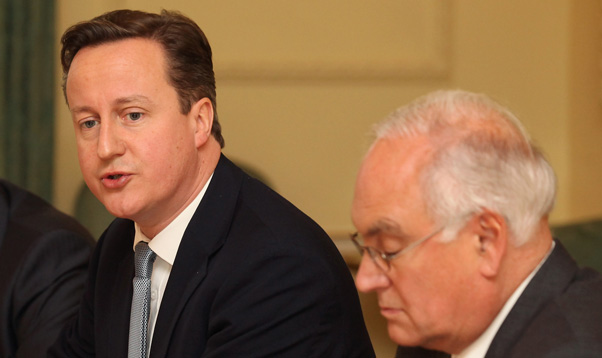Pupil premium scheme making ‘little or no difference’
Pupil premiums, the government policy to help the most disadvantaged schoolchildren, are making “little or no difference” to half of schools surveyed, Ofsted warns.

Sir Michael Wilshaw, Ofsted chief inspector, said today that the schools inspection body had been surprised that a half of schools surveyed had said the £1.25bn scheme had made little or no impact on the way the schools were being managed and operated.
Only 10 per cent of the schools surveyed said the scheme, which provides schools with an extra £600 per pupil eligible for free school meals or in long-term care, was having a “significant effect”.
Under the terms of the scheme, schools are allowed to spend the money as they see fit. Sir Michael said the extra money was being “subsumed” into main budgets, and that it was not “rocket science” to find ways for the money to make a difference to the poorest pupils.
“The big issue is that this money is for our poorest children to ensure that they achieve as well as others who come from more privileged backgrounds, it is simply not good enough for heads of schools to say that it is not changing policy,” he said.
“If this money is going to the main school budget and children from poor backgrounds are doing well, we do not have an issue with that and I’m sure that government won’t, that is not a problem as long as they can demonstrate that is happening.
“It will be an issue if it just falls into the main school budget and a school can’t show that it is improving the outcomes for poor children. We will be very critical of those schools that are not thinking long and hard about the use of the pupil premium.”
He said the money should be used to fund teachers who are effective at teaching children from poor backgrounds to do better and other initiatives such as enrichment programmes, extension classes and to pay staff overtime to come in to school at weekends.
Benefit eroded away
However, Chris Keates, general secretary of teachers’ union NASUWT, said the pupil premium had been destined to fail from the beginning.
“The pupil premium was never, despite claims to the contrary by ministers, ‘new’ money for schools,” he said.
“The fact that it was introduced at a time of savage cuts to the education budget and it was left to the discretion of schools on how to spend it has resulted in the premium being simply swallowed up in schools’ budgets.
“As the cuts are set to continue, any benefit there might have been as a result of the introduction of the pupil premium will be eroded away.
“If the pupil premium is to have any widespread positive impact on the children and young people for which it was introduced, it will need to be additional to school budgets and ring-fenced, with close scrutiny of how it is spent.”
Schools Minister David Laws said he welcomed the “valuable” report and government needed to “learn from it”.
He stressed the pupil premium had only been in place for one year, but acknowledged the finding that half of schools in a survey had said it was making little or no difference to the way they were being managed and operated was “not good enough”.
He added the government wanted “many more schools to use the pupil premium effectively”.